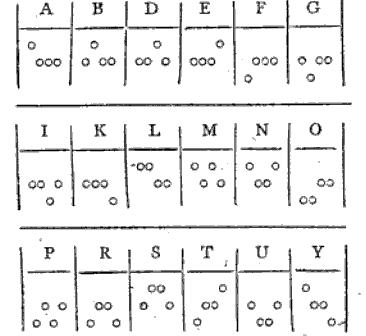When we think of the telegraph, we usually think of the version invented by Morse (and others). But the word “telegraph” has been around a lot longer than that, and much thought was given to the problem of rapidly communicating over long distances.
This is made clear by the discussion of the telegraph in the 1797 edition of the Encyclopaedia Britannica. I’ve scanned that article and have it posted at my website at this link.
The figure shown here is a representation of one possible scheme using 1797 technology. It’s also clear that the author anticipated the great developments that took place in the coming decades:
Were telegraphs brought to so great a degree of perfection, that they could convey information speedily and distinctly; were they so much simplified, that they could be constructed and maintained at little expence–the advantages which would result from their use are almost inconceivable. Not to speak of the speed with which information could be communicated and orders given in time of war, by means of which misfortunes might be prevented or instantly repaired, difficulties removed, and disputes precluded, and by means of which the whole kingdom could be prepared in an instant to oppose an invading enemy; it might be used by commercial men to convey a commission cheaper and speedier than an express can travel. The capitals of distant nations might be united by chains of posts, and the settling of those disputes which at present take up months or years might then be accomplished in as many hours. An establishment of telegraphs might then be made like that of the post; and instead of being an expense, it would produce a revenue. Until telegraphs are employed to convey information that occurs very frequently, the persons who are stationed to work them will never become expert, and consequently will neither be expeditious nor accurate, though, with practice, there is no doubt but they will attain both in a degree of perfection of which we can at yet have but little conception.
For more books about the history of the telegraph, you can visit my old radio books page.


